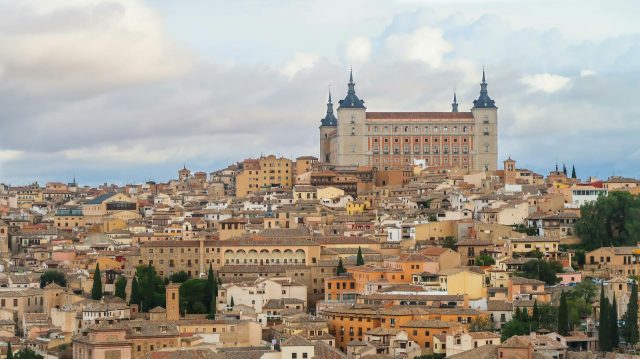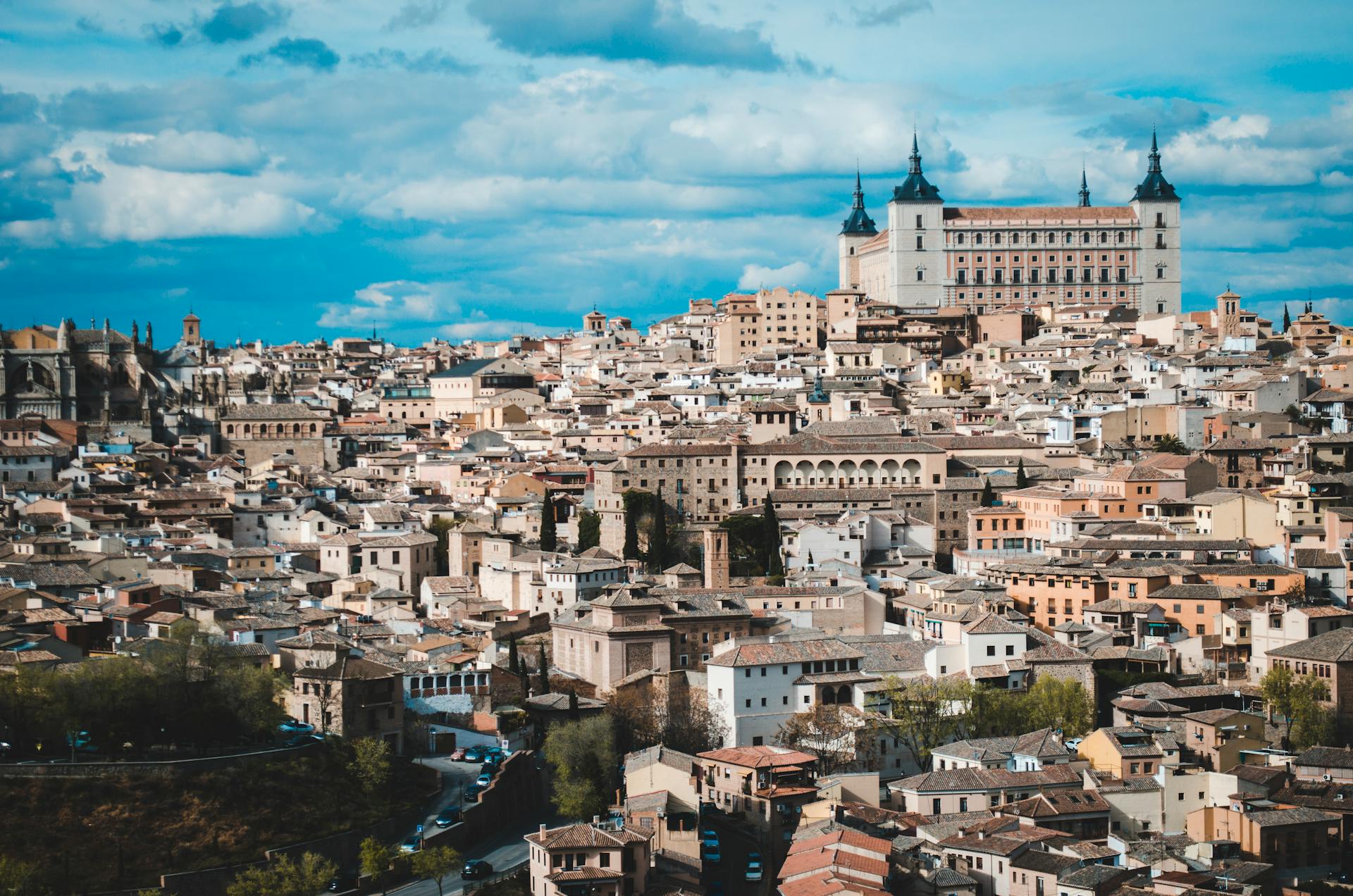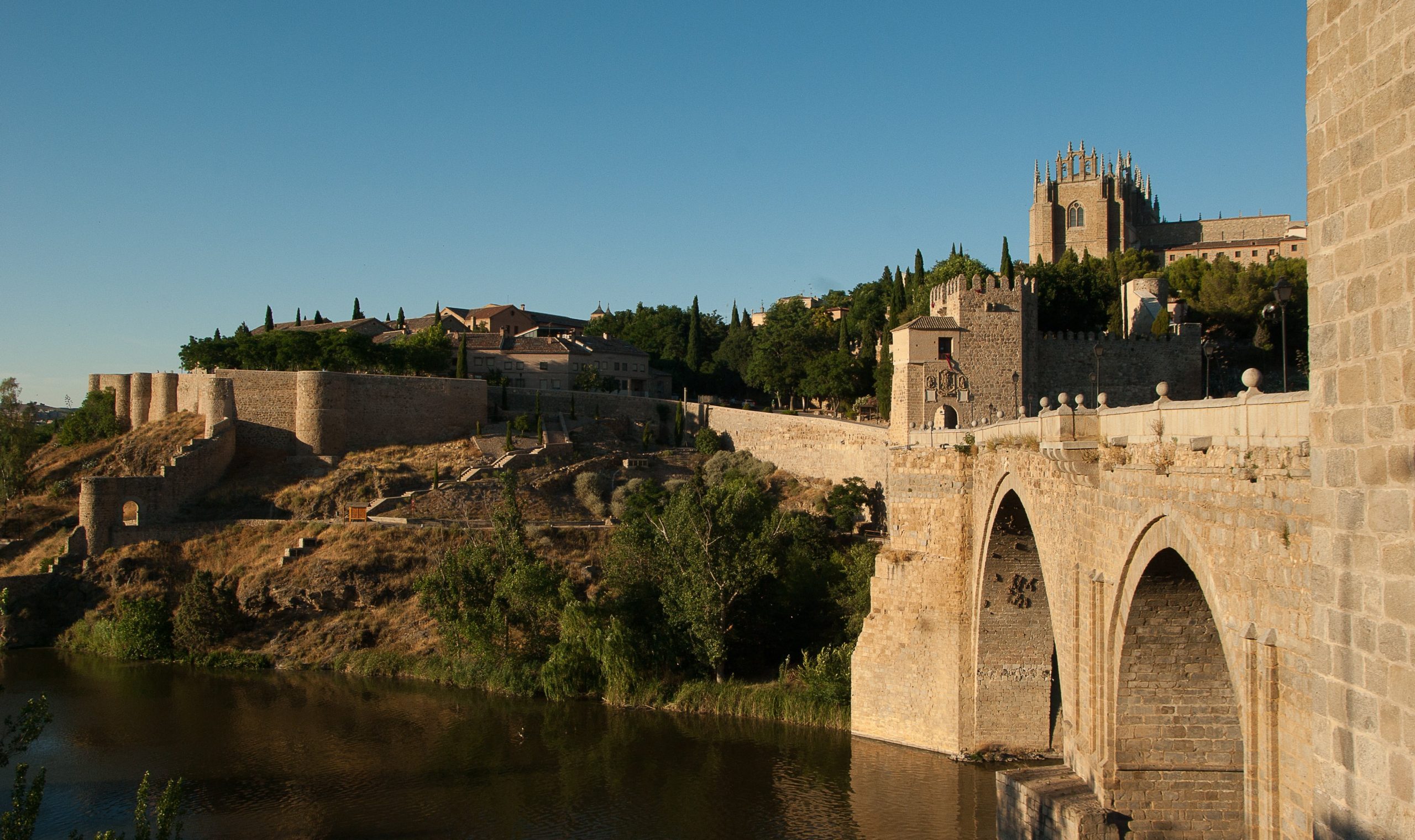
Supporters of conservative ideas from all over Europe and the world will meet in Madrid for EUROPA VIVA, Spain’s largest convention of European conservatives. The event, part of the ECR Party’s European Culture Weekend project, will take place in Madrid from the 17th to the 19th of May 2024.
For those who have accepted the ECR Party’s invitation to participate, the programme starts on Friday morning, the 17th of May with the Toledo Tour – the city of three cultures. It is well known that Toledo is a UNESCO World Heritage site, and is also home to the Toledo Cathedral, El Transito Synagogue, and El Greco museum. In the second part of the day on Friday the ECR Party organisers prepared the Youth Forum and ECR Party Youth Ball.
In the first part of the day participants will have the Sightseeing Madrid bus tour. Saturday afternoon is dedicated to the Europa Viva by the ECR Party conference. The organisers have prepared four panels where the following topics will be discussed:
Panel 1: “Sustainability and green energy challenges and opportunities.”
It is no longer news that sustainability and green energy challenges and opportunities are central issues in the current context of environmental and climate change concerns affecting our daily life. These are topics of major public, political and economic interest in the European Union with significant impacts on civil society and our future. Firstly, the challenges in the transition to green energy are obvious and complex. One of the most pressing is our current dependence on unsustainable energy sources such as fossil fuels (gas and oil). The use of fossil fuels contributes to greenhouse gas emissions that inevitably lead to global warming. We can therefore consider that this dependence on oil and gas is endangering natural resources, biodiversity and not least human health. On the other hand, the transition to green energy requires significant investment in infrastructure and sustainable technologies, which can be economically and logistically difficult to achieve. This transition to new technologies and the exploitation of green energy must also be fair. That is why economic measures and policy decisions must ensure that vulnerable communities are not left behind and that jobs and opportunities exist in the new green energy sectors. However, there are also many opportunities in this area. Green energy offers the opportunity to reduce carbon emissions and protect the environment. Green energy promotes innovation and technological development, creating new markets and business opportunities, which is why investing in green energy can bring long-term economic benefits by reducing energy costs and creating jobs in emerging sectors. Seizing these opportunities requires action and commitment not only at European level but also globally. We can say that there needs to be a symbiosis where governments, business and civil society work together to develop effective green energy and sustainability policies and strategies. Accelerating the transition to renewable energy sources, improving energy efficiency and promoting a culture of environmental responsibility and conservation is absolutely necessary. That’s why the challenges and opportunities in sustainability and green energy are interconnected and essential for a sustainable future. By tackling these issues with determination and innovation, we can build a safer, cleaner and more prosperous future for generations to come.

Panel 2: “Tourism looking at Judeo-Christian landmarks of Europe.”
Tourism associated with Judeo-Christian landmarks of Europe is an important component of this branch of industry on the old continent and offers both opportunities and challenges in terms of sustainability and green energy. These landmarks include some of the holiest sites for Christians and Jews around the world (St Peter’s Basilica in the Vatican, the Church of the Holy Sepulchre in Jerusalem or Notre-Dame Cathedral in Paris). The sites listed attract millions of pilgrims and tourists every year, which translates into significant revenues for local economies. At the same time, these tourist areas, which attract millions of visitors each year, are subject to pressures on the environment and natural resources. The challenges associated with tourism at these landmarks therefore include managing the large flow of visitors and their impact on local infrastructure, air quality and water resources. Also, in the context of increasing visitor numbers and the impact of mass tourism there is a growing concern on the part of public authorities about the preservation and protection of cultural and religious heritage. See the latest measures taken in Venice. On the other hand, there are a number of opportunities to promote sustainability and green energy in the tourism industry associated with these landmarks. These opportunities could include the implementation of waste and water management practices, the use of renewable energy to power tourism infrastructure and the promotion of sustainable transport to access these sacred sites. Investments in green infrastructure and sustainable technologies can also help reduce the carbon footprint of religious tourism and preserve the environment for future generations. Information, education and awareness campaigns can play an important role in promoting responsible tourist behaviour and protecting the cultural and natural heritage associated with these Judeo-Christian landmarks.
Panel 3: “AI transforming our societies, adapt and thrive or be left behind.”
Artificial intelligence (AI) is a disruptive force that has transformed society in recent years in an unprecedented and arguably irreversible way. It is well known that this technology is influencing all aspects of our lives (from the workplace and the economy to education and social relations).
Society must therefore adapt and embrace change to cope with this transformation. This requires a deep understanding of the potential and challenges brought by AI and developing the skills to use this technology effectively and responsibly. Adapting to the influence of AI can bring progress and at the same time improve process efficiency, promote innovation, generate new jobs in areas such as technology, medicine and engineering. By investing in education and training, society can prepare itself for future labour market requirements and reap the benefits of technological progress. However, there is also a risk of lagging behind in the face of the transformations brought about by AI which can create economic and social disparities, widen inequalities and put at risk jobs that can be automated. It is essential that governments, companies and communities work together to ensure that the benefits of AI are distributed fairly and that no one is left behind. Artificial intelligence is transforming our societies in profound and complex ways. To thrive in this age of technology, we need to adapt to change, invest in new skills and responsibly manage the impact of this technological transformation on our lives.
Panel 4: “Efficient and Humane, a conservative alternative to illegal immigration.”
In the context of the EU-wide debate on illegal immigration, a conservative and humane alternative is to emphasise the efficiency of legal immigration systems. These systems involve strengthening law enforcement processes and promoting policies that facilitate orderly and legal immigration. Improving the effectiveness of legal immigration systems can therefore reduce the motivation of individuals to resort to illegal immigration. Therefore, by simplifying and speeding up the procedures for obtaining visas and residence permits, bureaucratic barriers that can encourage illegal immigration can be removed. At the same time, it is important to promote humane and compassionate policies towards those seeking asylum or protection. This involves creating effective mechanisms for assessing asylum applications and ensuring that vulnerable people receive the necessary assistance and support. By tackling illegal immigration through a combination of effective and humane measures, we can protect national interests and promote the core values of human rights and humanity. Such a conservative approach can provide sustainable and fair solutions to the challenges of illegal immigration.

The speakers who will debate the topics in the four panels are:
NIALL BOYLAN (Candidate for EU Elections, Independent Party, Ireland), LORD MARTIN JOHN CALLANAN (Under Secretary of State for Energy, UK), GIANLUCA CARAMANNA (Member of Parliament, Italy), NENO DIMOV (Director of the Conservative Institute, Former Minister of Water & Environment, Bulgaria), CARLO FIDANZA (Member of European Parliament, Italy), ANTONIO GIORDANO (ECR Party Secretary General,Member of Parliament, Italy), JUERGEN JOOST (Federal Chairman, Germany) , MICHAEL KELLY (Former editor of the Irish Catholic, Director of Public Outreach at Aid to the Church in Need, Ireland), ELISABETTA MIGLIORELLI (Journalist and TV anchor, Italy), MARKO MILANOVIC LITRE (ECR Party Member of the Board, Croatia), ADELA MIRZA (President of Alternativa Dreapta Party, Romania), SIMONA PETRUCCI (Member of Parliament, Italy), ALESSANDRA PRIANTE (President of ENIT, Italy), ROB ROSS (Member of Parliament, Netherlands) , ANDRZEJ SADOŚ (Ambassador former Permanent Representative of Poland to the EU, Poland), GIEDRIUS SURPLYS (Member of Parliament, Lithuania), BEATRICE TIMGREN (Member of Parliament, Sweden), ZVONIMIR TROSKOT (International Secretary of Most party, Member of Parliament, Croatia), AURELIJUS VERYGA (Member of Parliament, Lithuania) , PAVEL ŽÁČEK (Member of Parliament, Czechia).
The ECR Party’s Manifesto: A European and conservative Future for Europe will be launched at the end of Saturday’s debates. Here are the 10 points that ECR members consider extremely important for Europe’s future.
1. Preserving National Identity: Reforming the European Union and Safeguarding Member State Sovereignty
2. Safeguarding Our Citizens: A Strong Defence, United Front
3. Securing Our Borders: A Comprehensive Migration Strategy
4. Harvesting Tomorrow: Sustainable Farming and Fishing for a Better Future
5. Revising the Green Deal: Balancing Climate Action and Prosperity
6. Igniting Economic Growth: Unleashing the Potential of the Single Market and Europe’s Small Businesses
7. Energise and Innovate: Lighting the Path to a Resilient Future!
8. Driving Global Economic Growth: A Bold Vision for Trade
9. Smart Spending, Smart Future: Revolutionising the 21st Century EU Budget!
10. Charting Europe’s Course: Strengthening Global Security and considering further enlargement in the new geopolitical environment
Saturday will end with the Traditional Spanish dinner. If this has piqued your interest, don’t miss the opportunity to attend EUROPA VIVA, Spain’s largest convention of European conservatives.



 Subscribe
Subscribe